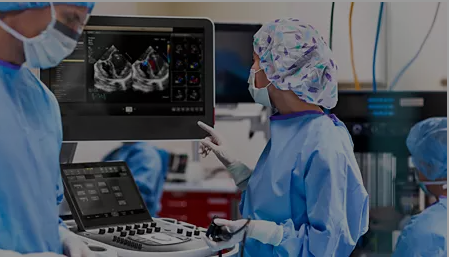When it comes to heart health, echocardiography (commonly known as an echo test) plays a vital role in diagnosing and monitoring cardiovascular conditions. Understanding the echo test charges, what affects the cost, and how to find affordable options is essential for patients who want high-quality healthcare without unnecessary financial strain.
In this detailed guide, we explore everything you need to know about affordable echo test charges, including cost ranges, influencing factors, insurance coverage, and tips to reduce expenses while ensuring accurate results.
What Is an Echo Test?
An echo test is a non-invasive medical imaging procedure that uses ultrasound technology to create images of the heart. It helps cardiologists examine the size, structure, and movement of the heart’s chambers and valves. This test is widely used to detect conditions such as:
- Heart valve diseases
- Congenital heart defects
- Cardiomyopathy
- Heart failure
- Blood clots or fluid around the heart
Since the test is painless and does not involve radiation, it is considered one of the safest diagnostic procedures in modern cardiology.
Average Echo Test Charges
The cost of an echo test varies depending on multiple factors, but on average, patients can expect to pay:
- Basic 2D Echo Test: $70 – $250
- 3D Echo Test: $150 – $500
- Stress Echo Test: $200 – $800
- Transesophageal Echo Test (TEE): $300 – $1,200
In some regions, government or charitable hospitals may offer echo tests at significantly reduced charges, sometimes starting as low as $40. On the other hand, private hospitals and specialized cardiac centers usually have higher pricing structures due to advanced equipment and specialist consultation fees.

Factors That Affect Echo Test Charges
The final cost of an echo test is influenced by several key factors:
1. Type of Echo Test
A standard 2D echo test costs less than specialized procedures like 3D echocardiography or transesophageal echo, which require more advanced technology and expertise.
2. Location of the Healthcare Facility
Charges may differ significantly between urban and rural areas. In major cities, echo test costs are generally higher due to increased operational expenses and higher demand for specialized care.
3. Hospital or Diagnostic Center
Government hospitals often provide subsidized rates, while private hospitals and premium diagnostic centers may charge more due to advanced imaging equipment and the availability of senior cardiologists.
4. Additional Consultation Fees
In many cases, the cost of the test also includes cardiologist consultation charges, which may range from $30 – $150 depending on the doctor’s expertise.
5. Insurance Coverage
If you have health insurance, part or all of the echo test charges may be covered, depending on your policy terms.
Insurance Coverage for Echo Tests
Many health insurance providers recognize echocardiography as a medically necessary diagnostic test. Policies typically cover:
- Routine diagnostic tests for suspected heart issues
- Follow-up echo tests for chronic heart conditions
- Pre-surgical assessments for cardiac patients
However, coverage varies depending on the insurance provider and the specific policy. It is always advisable to confirm with your insurance company whether an echo test is included in your plan.
How to Find Affordable Echo Test Charges
Patients can take proactive steps to find budget-friendly echo test options without compromising on quality. Here are some proven strategies:
1. Compare Prices Across Multiple Centers
Do not settle for the first hospital or diagnostic lab you visit. Many centers publish their echo test charges online, making it easier to compare and choose the most affordable option.
2. Explore Government and Charitable Hospitals
Public hospitals and charitable medical institutions often provide echo tests at highly subsidized rates, making them an excellent option for cost-conscious patients.
3. Use Health Insurance Wisely
Ensure that your health insurance plan covers diagnostic tests. Submitting claims correctly and on time can significantly reduce out-of-pocket expenses.
4. Take Advantage of Health Packages
Many hospitals and labs offer comprehensive health packages that include an echo test along with ECG, blood tests, and consultations at a discounted price.
5. Ask About Discount Programs
Some diagnostic centers provide discounts for students, senior citizens, or low-income patients. Asking about available programs can help reduce charges.
Cost vs. Quality: Why Balance Matters
While affordability is essential, it should never come at the expense of quality healthcare. Choosing the cheapest available option without verifying the facility’s reputation and the doctor’s credentials can lead to inaccurate results and misdiagnosis.
Always consider:
- Accreditation of the diagnostic center
- Experience of the cardiologists
- Technology used in imaging
- Patient reviews and testimonials
A slightly higher charge at a reliable healthcare provider is always better than risking your heart health with low-quality facilities.
Frequently Asked Questions (FAQs)
Q1: How long does an echo test take?
Most echo tests take 30 to 60 minutes depending on the type.
Q2: Is fasting required before an echo test?
No fasting is required for standard echo tests, but for a transesophageal echo test, fasting for a few hours may be necessary.
Q3: Can I get an echo test without a doctor’s referral?
In many cases, a doctor’s referral is required, but some diagnostic labs allow patients to book the test directly.
Q4: Are there risks associated with echo tests?
Echo tests are generally safe and non-invasive, with no significant risks.
Conclusion
An echo test is one of the most vital diagnostic tools for monitoring heart health. While charges may vary depending on the type of test, location, and healthcare provider, it is possible to find affordable echo test charges without sacrificing accuracy and quality. Patients who compare prices, utilize insurance benefits, and choose reputable healthcare centers can manage their heart health effectively while keeping costs under control.


